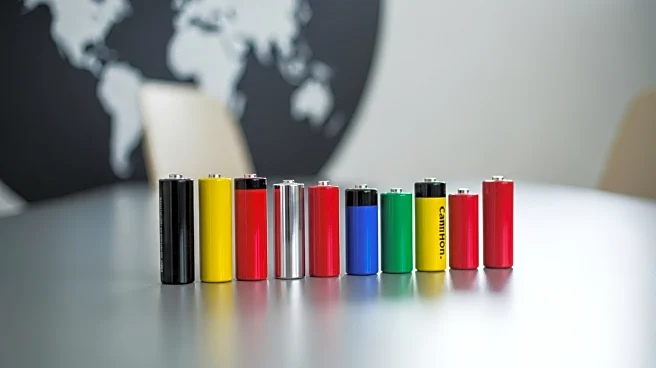What is the story about?
What's Happening?
Kamran Mahdavi, CEO of Altilium, a Devon-based electric vehicle battery company, joined Prime Minister Keir Starmer on a trade mission to India. The delegation aims to strengthen UK-India collaboration on net zero initiatives. Mahdavi chaired a roundtable discussion in Mumbai to launch the UK-India Critical Minerals and Downstream Collaboration Guild. The event, hosted by UK Secretary of State for Business and Trade Peter Kyle, seeks to drive joint ventures in critical minerals processing, battery recycling, and rare earth production. Altilium is pioneering the recovery of battery-grade materials from end-of-life EV batteries, reducing reliance on single-source suppliers and cutting greenhouse gas emissions.
Why It's Important?
The trade mission underscores the strategic importance of critical minerals for clean energy transitions and national security. By fostering UK-India collaboration, the initiative aims to build resilient supply chains and technology partnerships, essential for achieving net zero goals. Altilium's involvement highlights the UK's commitment to developing sustainable battery recycling processes, which are crucial for reducing environmental impact and enhancing energy security. The collaboration could lead to significant advancements in battery technology and supply chain resilience, benefiting both countries economically and environmentally.
What's Next?
Following the trade mission, stakeholders may pursue further agreements and partnerships to advance the goals set during the roundtable discussion. Altilium's pilot plant in Plymouth is set to begin full operations, with plans for a commercial-scale facility underway. These developments will likely create new jobs and contribute to the UK's clean tech industry. The collaboration may also influence policy decisions regarding critical minerals and battery recycling, potentially leading to new regulations and incentives.
Beyond the Headlines
The focus on critical minerals and battery recycling reflects broader global efforts to transition to sustainable energy solutions. As countries prioritize net zero goals, the demand for efficient recycling processes and secure supply chains will increase. This collaboration could set a precedent for international partnerships in clean tech innovation, influencing future trade missions and environmental policies.
















